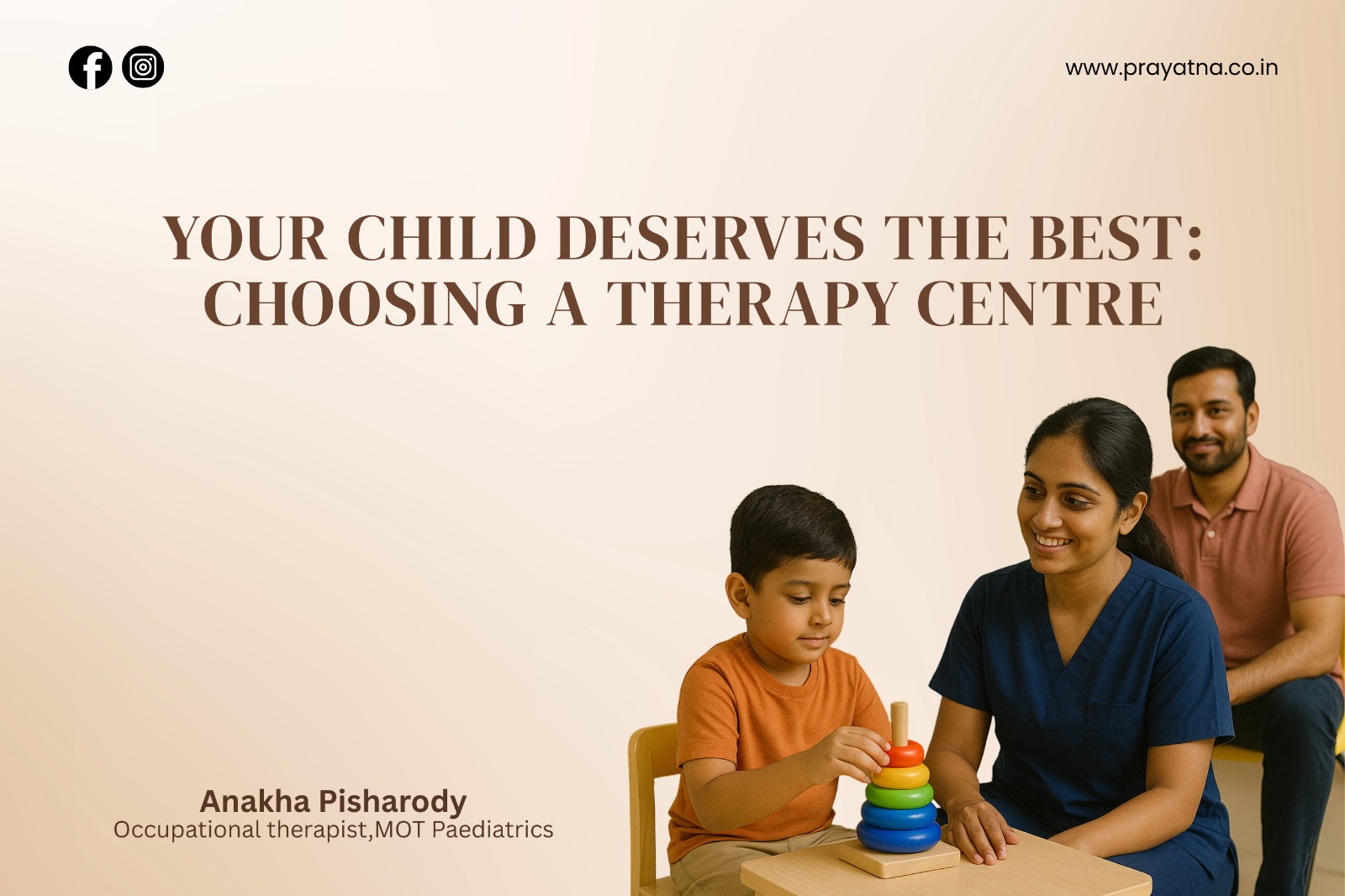Introduction
Choosing the right therapy centre for your child is a crucial decision that can significantly influence their development, confidence, and
overall well-being. With a wide variety of therapy options available today, it’s essential for parents and caregivers to make informed
choices based on the child’s unique needs. A supportive, professional, and child-centered environment can make a meaningful
difference in the child’s progress and family’s journey.
When choosing a therapy centre for a child, especially one with developmental, physical, or behavioral challenges, it’s important to consider several key factors to ensure the child receives quality, individualized care. Whether you’re exploring options at the No. 1 Autism Treatment Centre in Kerala or seeking the Best Child Development Centre in Kochi, here are the main factors to consider:
Here are the main factors to consider:
1. Qualification and Experience of Therapists
Are the therapists certified and licensed?
Do they have experience working with children and specific conditions (e.g., autism, cerebral palsy, ADHD)?
Is there a multidisciplinary team (occupational therapist, special educators, speech therapist, psychologist, physiotherapist, etc.)?
2. Child-Centered and Individualized Approach
Is the therapy plan customized to the child’s needs?
Are goals set in collaboration with parents?
Is the child’s comfort, interest, and pace considered?
3. Parent Involvement
Are parents involved in therapy sessions or goal-setting?
Are there home programs or carryover activities provided?
Is parent education a part of the process?
4. Environment and Facilities
Is the centre clean, safe, and child-friendly?
Are therapy spaces well-equipped and sensory-friendly?
Are there age-appropriate materials and toys?
5. Availability and Accessibility
Is the centre located conveniently?
Are appointment slots flexible?
How long is the waiting time for appointments?
6. Communication and Progress Monitoring
Are progress reports and feedback given regularly?
Is there open, clear communication between therapist and parent?
Are reassessments done periodically?
7. Reputation and Reviews
Does the centre have good word-of-mouth or online reviews?
Can the centre provide references or success stories?
Is it recommended by pediatricians or schools?
8. Cost and Insurance
Are the therapy fees transparent?
Do they accept insurance or provide reimbursement support?
Are there options for financial assistance?
9. Ethical and Professional Standards
Are therapists professional and respectful?
Is confidentiality maintained?
Is there a clear system for concerns or complaints?
10. Evidence-Based Practices
Are therapies based on current research and best practices?
Do they follow recognized intervention models (e.g., SI, NDT, ABA)?
11. Cultural Sensitivity and Language
Are the therapists respectful of family values, traditions, and language preferences?
Can therapy be delivered in the child’s primary language?
Is there sensitivity to dietary, religious, or social preferences?
12. Transition Planning and School Readiness
Does the centre support transitions (e.g., from early intervention to school)?
Are there programs focused on school readiness or academic support?
Is collaboration with teachers or schools encouraged?
13. Peer Interaction and Group Therapy Options
Are group sessions available for social skills, play, or communication?
Does the centre provide opportunities for peer interaction?
Are groups matched by age or developmental level?
14. Technology Integration
Are modern tools or apps used in therapy (e.g., AAC devices, sensory integration tools)?
Is teletherapy/online therapy sessions an option when needed?
15. Long-Term Planning and Skill Generalization
Are therapy goals aligned with long-term independence?
Are skills practiced in real-life settings (e.g., community visits, ADL tasks)?
Does the centre support generalization of skills to home and school?
Conclusion
Selecting a therapy centre is more than just finding a place for treatment, it’s about building a partnership that supports your child’s
growth, development, and happiness. By carefully considering these factors, from therapist qualifications and individualized care to
parent involvement and long-term planning, families can find a centre that truly aligns with their goals and values. Remember, the
right therapy centre not only empowers the child but also uplifts the entire family with guidance, support, and hope.
Anakha Pisharody
Occupational
MOT
Therapist
Paediatrics

